UPSC CSE (Mains) GS P-3 PYQ Papers (2014-2025)
₹45.00 Original price was: ₹45.00.₹40.00Current price is: ₹40.00.
Conquer the most dynamic UPSC paper, GS-3, with this essential PYQ e-book. Spanning 2014 to 2025, this collection is your key to mastering the diverse syllabus—from Economy, Agriculture, S&T, Environment, Internal Security to Disaster Management. Analyze the unpredictable question patterns, identify high-yield topics, and refine your answer writing to maximize your score.
Understanding the Trends in GS Paper-3 (2014-2025)
The analysis of the UPSC Civil Services Examination (CSE) Mains GS Paper-3 from 2014 to 2025 reveals significant trends that can provide insights for future aspirants. Over the past decade, certain themes have consistently emerged, while others have notably gained prominence, reflecting the changing dynamics of national and global priorities.
One of the predominant areas of focus in GS Paper-3 has been agriculture. Questions pertaining to topics such as sustainable farming practices, food security, and agrarian distress consistently appear, indicating a sustained interest in this sector. The recurrent inclusion of these themes suggests that candidates should develop a robust understanding of agricultural policies and innovative techniques that can enhance productivity and resilience against climate change.
In parallel, environmental issues have also seen a notable surge in relevance. With global discussions surrounding climate change intensifying, the UPSC has reflected this shift by incorporating questions on environmental degradation, conservation strategies, and sustainable development. Aspirants must stay abreast of current environmental legislation and international agreements that impact India’s ecological framework.
Disaster management emerges as another key theme, with increasing frequency in the examination papers. The emphasis on disaster response and preparedness indicates the growing importance of this field in both policy-making and governance. Candidates should familiarize themselves with disaster management frameworks, case studies of past disasters, and governmental responses to such crises.
Moreover, technology and its implications on governance and society have increasingly featured in GS Paper-3. Questions exploring technological advancements, digital governance initiatives, and their socio-economic impacts reflect an evolving curriculum that warrants attention. Aspiring candidates should thus enhance their knowledge of contemporary technologies and their applications in public policy.
In summary, the trends observed in the UPSC CSE Mains GS Paper-3 over the past decade highlight the need for aspirants to strategically focus on agriculture, environment, disaster management, and technology. Understanding these areas can significantly enhance preparation and performance in future examinations.
Effective Preparation Strategies Based on PYQ Analysis
Preparing for the UPSC CSE Mains GS Paper-3 requires a strategic approach, especially when informed by the analysis of past year’s questions (PYQs) spanning 2014 to 2025. One of the fundamental strategies for effective preparation is to thoroughly analyze these PYQs to identify recurring themes and patterns. Candidates should dedicate time to scrutinizing questions, categorizing them according to topics such as environment, disaster management, economy, and internal security. This will aid in understanding the weightage of different subjects, enabling aspirants to prioritize their study plans accordingly.
Another crucial aspect is to develop efficient note-taking techniques. When engaging with study materials and resources, students should create concise, organized notes that encapsulate key concepts, facts, and case studies relevant to the topics identified. Utilizing mind maps or flowcharts can be beneficial in summarizing complex information in a digestible format. Making flashcards can also facilitate quick revisions and help reinforce memorization of important facts and statutes that are often asked in the examination.
A diverse resource pool is essential for deeper understanding. Candidates are encouraged to complement their preparation with various materials—a combination of standard textbooks, government reports, and online resources. The integration of current affairs, particularly those published in reputed newspapers and journals, can significantly enhance comprehension and context, as many PYQs are often related to contemporary issues. Joining study groups and engaging in discussions can also prove invaluable, allowing for the exchange of insights and diverse perspectives.
Practicing answer writing is vital for success in the UPSC Mains examination. Candidates should attempt to write answers to previously asked questions within a time limit to simulate exam conditions. This practice not only helps in mastering the art of time management but also aids in identifying areas that require more focus and improvement. The combination of strategic analysis of PYQs, effective note-taking, varied resources, and diligent practice can significantly elevate an aspirant’s readiness for the examination.
Be the first to review “UPSC CSE (Mains) GS P-3 PYQ Papers (2014-2025)” Cancel reply
Related products
Mains PYQ Paper
Mains PYQ Paper
Mains PYQ Paper
Mains PYQ Paper
Mains PYQ Paper
Mains PYQ Paper
General Hindi





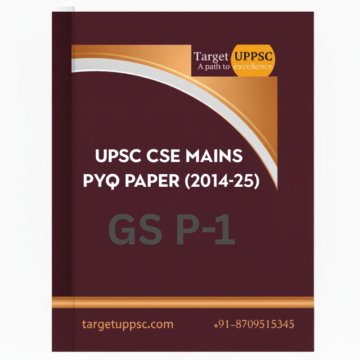
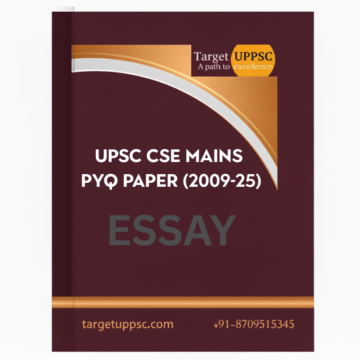
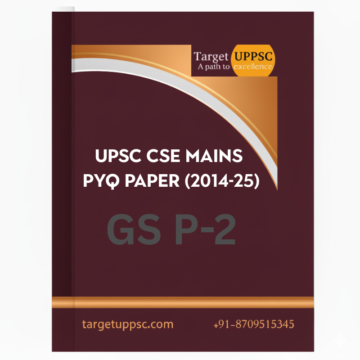

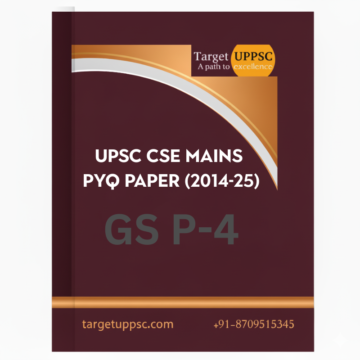
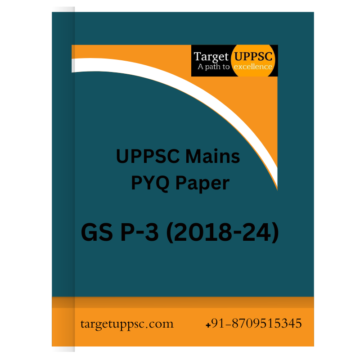

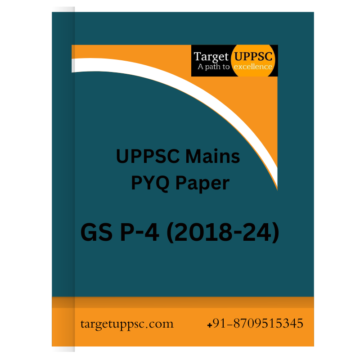

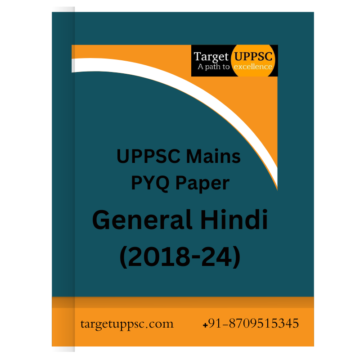

Reviews
There are no reviews yet.